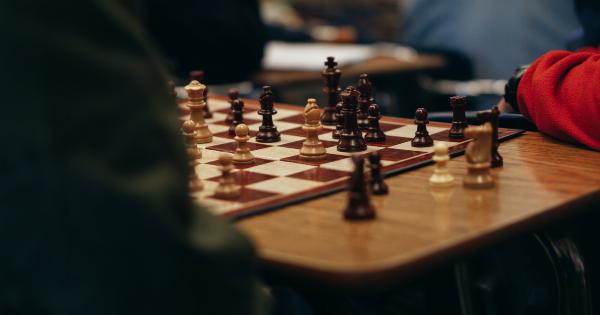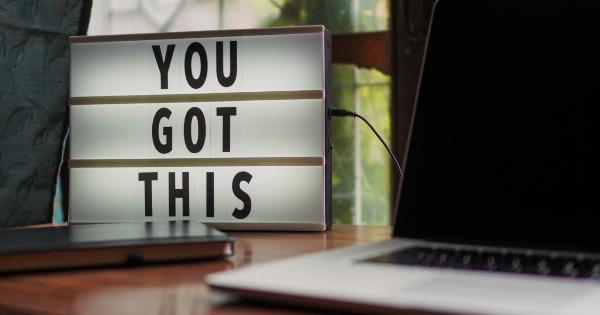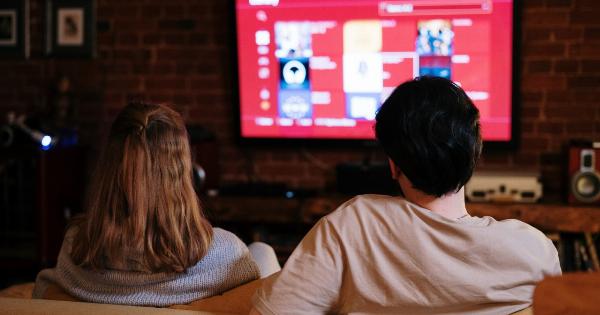As humans, we are often tempted to fiddle with things around us. Whether it’s our gadgets, relationships, or even our own thoughts, fiddling seems to be a part of our nature.
However, constantly tinkering with things can lead to unnecessary complications and stress. In this article, we will discuss a straightforward approach for avoiding fiddling and how it can benefit us in various aspects of our lives.
The Dangers of Fiddling
Fiddling, while seemingly harmless, can have several negative consequences. It can lead to wasted time and energy, reduced focus, and a lack of productivity.
Constantly fiddling with things can also result in decision paralysis, as we become obsessed with finding the perfect solution or outcome. Additionally, fiddling can strain relationships and breed self-doubt, as we question our choices and abilities.
Identify the Triggers
The first step in avoiding fiddling is to identify the triggers that prompt us to start tinkering. These triggers can vary from person to person, but common ones include boredom, fear of failure, perfectionism, and seeking validation from others.
By recognizing these triggers, we can become more aware of when we are likely to start fiddling and take proactive measures to avoid it.
Set Clear Goals
Another essential aspect of avoiding fiddling is setting clear goals. When we have a clear vision of what we want to achieve, we are less likely to get sidetracked by unnecessary tinkering.
By outlining specific, measurable, achievable, relevant, and time-bound (SMART) goals, we provide ourselves with a roadmap to follow. This clarity helps us stay focused and reduce the urge to fiddle.
Develop a Routine
A well-defined routine can work wonders in preventing fiddling. By establishing a regular schedule for work, leisure, and other activities, we create structure and reduce the need to constantly intervene.
When we have set times allocated to specific tasks, we are less likely to fiddle around aimlessly. Developing a routine also helps in managing time effectively and maintaining a healthy work-life balance.
Acknowledge Imperfections
One common reason people resort to fiddling is the desire for perfection. By acknowledging that perfection is an unrealistic and unattainable goal, we can eliminate the need to constantly tinker and make adjustments.
Embracing imperfections allows us to focus on progress rather than on an unattainable ideal. It also fosters a healthier mindset, reduces stress, and allows us to appreciate the journey instead of obsessing over the destination.
Practice Mindfulness
Mindfulness is a powerful tool for avoiding fiddling. By practicing mindfulness, we develop an increased awareness of our thoughts, emotions, and actions.
This awareness helps us recognize when we are about to start fiddling and provides us with the opportunity to pause and assess whether it is necessary or productive. Mindfulness also helps in staying present, improving concentration, and making conscious choices.
Embrace the Learning Process
Instead of constantly fiddling in search of the perfect solution, we should embrace the learning process. Every project, task, or relationship has its own set of challenges and lessons.
By approaching situations with a growth mindset, we acknowledge that mistakes and imperfections are opportunities for growth. Embracing the learning process allows us to let go of the need for constant adjustment and instead focus on acquiring knowledge and experience.
Cultivate Self-Confidence
Fiddling often stems from a lack of self-confidence. When we doubt our abilities or fear making mistakes, we tend to fiddle with things excessively. Developing self-confidence is crucial in avoiding this behavior.
By acknowledging our strengths, celebrating our achievements, and cultivating a positive self-image, we can reduce the need for constant tinkering. Self-confidence allows us to trust our decisions and resist the urge to constantly seek external validation.
Surround Yourself with Supportive People
The people we surround ourselves with can either encourage or discourage fiddling behavior. To avoid unnecessary tinkering, it is important to surround ourselves with supportive individuals who understand our goals and aspirations.
Supportive friends, family, or colleagues can provide guidance, constructive feedback, and accountability. They can help us stay focused on our objectives and avoid getting caught up in needless fiddling.
Reflect and Iterate
Regularly reflecting on our actions and outcomes is vital in avoiding fiddling. By setting aside time for self-reflection, we can assess our progress, identify areas of improvement, and make necessary adjustments.
This intentional reflection allows us to approach future endeavors with a more informed mindset and reduces the tendency to fiddle aimlessly. Reflection also enables us to recognize patterns and triggers, making it easier to avoid fiddling in the future.
Summary
Avoiding fiddling can greatly benefit us, both personally and professionally.
By identifying triggers, setting clear goals, establishing routines, acknowledging imperfections, practicing mindfulness, embracing the learning process, cultivating self-confidence, surrounding ourselves with supportive people, and reflecting on our actions, we can adopt a straightforward approach to minimize fiddling tendencies. By doing so, we free up time and mental energy to focus on what truly matters, leading to increased productivity, improved relationships, and a more balanced and fulfilling life.





























